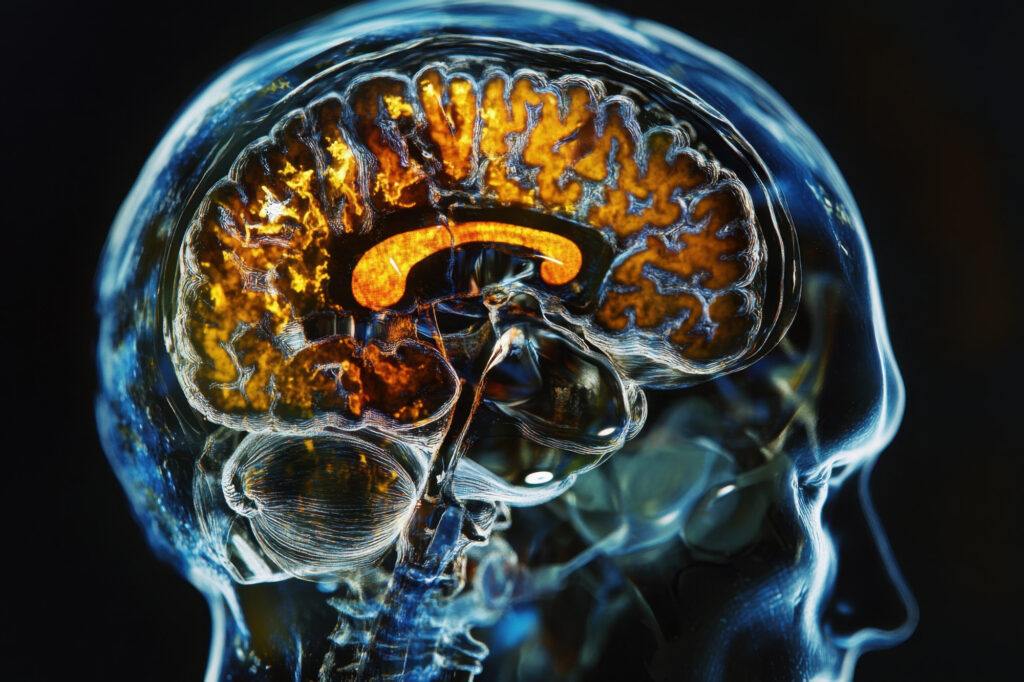Sleep Apnea Has Been Linked to a Higher Parkinson’s Risk
“The study found that there were 1.8 more cases of Parkinson’s disease per 1,000 people in the OSA group as compared to the non-OSA group.” – American Academy of Neurology
A recent study published in npj Parkinson’s Disease took a comprehensive look at sleep problems in individuals with early-stage Parkinson’s disease. Researchers evaluated 162 people with early-stage Parkinson’s and compared them to 58 individuals without the condition. Using interviews, overnight sleep studies (polysomnography), and a series of tests, they assessed sleep patterns, motor function, cognitive abilities, and overall health.
“The findings revealed that 71% of participants with early-stage Parkinson’s experienced at least one type of sleep disorder.” –Parkinson.org
Another study from researchers of the American Academy of Neurology examined health data from over 1.6 million veterans who had sleep apnea and nearly 10 million who did not. They tracked how many people from both groups developed Parkinson’s disease. Their finding?
“A growing body of evidence suggests that sleep apnea and Parkinson’s disease are connected—about four in 10 people with Parkinson’s have also been diagnosed with this sleep disorder.” – Health.com
While the connection between Parkinson’s and Sleep Apnea has recently been published, it’s well known and studied that Obstructive Sleep Apnea (OSA) has been linked to several other cognitive and neurodegenerative diseases including Alzheimer’s Disease, Vascular Dementia, Mild Cognitive Impairment (MCI), Lewy Body Dementia, Attention Deficit & Hyperactive Disorder (ADHD) and Anxiety and Depression. Studies confirm a strong connection between obstructive sleep apnea and cognitive impairment:
Attention & Visual Memory/Processing
Obstructive Sleep Apnea (OSA) can lead to problems with visual processing and visual memory. Poor sleep disrupts the brain’s ability to consolidate visual memories—this includes remembering faces, locations, or visual patterns. REM sleep, which plays a key role in memory and learning, is often reduced in OSA.
“Researchers spent four years studying cognition and white matter in people with OSA. They found that ongoing OSA changes the health of white matter and may be associated with a decline in: Attention, Visual memory, and Visual processing.” – Journal of the American Medical Association
“People with sleep apnea may have a greater risk of developing cognitive issues, according to new research. The study, which involved over 4,200 people, found that those with sleep apnea were about 50% more likely to have memory and thinking problems compared to those without sleep apnea.” – NIH Study
Dementia & Alzheimer’s Disease
Obstructive Sleep Apnea (OSA) is strongly linked to both dementia and Alzheimer’s disease. OSA promotes systemic inflammation and blood vessel damage, both of which are risk factors for vascular dementia and cognitive decline.
“The most frequently observed pattern of cognitive impairment in OSA appears to be characterized by deficits in attention, working memory, and executive function. These deficits may indicate a subcortical dysfunction, such as that seen in vascular dementia. This suggests that OSA may promote microvascular damage. Conversely, studies have indicated that OSA may be associated with an increased risk of Alzheimer’s disease.” – Oxford Academic
“People with sleep apnea may have a greater risk of developing cognitive issues, according to new research. The study, which involved over 4,200 people, found that those with sleep apnea were about 50% more likely to have memory and thinking problems compared to those without sleep apnea.” – NIH Study

ADHD
Studies indicate that a significant percentage of individuals with ADHD also experience sleep apnea. Estimates suggest that around one-third of patients with ADHD may have sleep apnea, making it a crucial aspect of their overall health. This overlap can complicate diagnosis and treatment, as sleep apnea symptoms can mimic those of ADHD, and untreated sleep apnea can worsen ADHD symptoms.
“OSA and ADHD can be comorbid conditions, and ADHD symptoms can be a clinical presentation of OSA. ADHD is associated with a variety of childhood sleep disorders. This is due to a variety of factors including iatrogenic sleep disturbances, sleep problems being an intrinsic feature of ADHD, and, as discussed later, the fact that sleep problems may cause or mimic ADHD.” – Journal of Clinical Sleep Medicine
“Attentional deficits have been reported in up to 95% of OSA patients. In full syndromal ADHD, a high incidence (20% to 30%) of OSA has been shown. All 6 interventional studies reported improvements in behavior, inattention, and overall ADHD after treatment of OSA.” – NIH Study
Anxiety & Depression
Obstructive Sleep Apnea (OSA) can worsen anxiety and depression by disrupting sleep, impacting brain function, and affecting hormone balance, which can all contribute to mood disorders.
“The relationship between these conditions is two-way. Both OSA and depression are linked with systemic inflammation, which can contribute to the severity of symptoms in both disorders. The physiological disruptions caused by OSA, like sleep fragmentation and oxygen desaturation, may contribute to the development of depression and anxiety, or aggravate depressive symptoms such as fatigue and mood changes.” – Resmed Sleep Institute
“Some researchers have also suggested that sleep apnea’s effects on oxygen saturation in the blood during sleep could contribute to the development of depressive symptoms. What’s more, depression may make it harder for you to maintain a healthy weight or stay physically active, which can increase your risk of developing OSA.” – Verywell Health
“Snoring affects 66.3% of people with sleep apnea, making it the top symptom. Anxiety (53.9%) and depression (46.1%) follow, showing a clear connection to mental health. Researchers analyzed how sleep apnea, anxiety, and depression are connected. Panic attacks and feeling being slowed down stood out as the strongest links between these conditions.” – BMC Psychiatry
It’s evident from the excessive research completed on OSA’s and mental health and neurodegeneration processes, that there’s a proven link of cause and effect. The next questions that organically follows is why and how. Why and how does OSA deteriorate brain function over time?
Why does OSA Impair Cognitive Function?
From the studies mentioned above, it’s clear that Obstructive Sleep Apnea (OSA) can significantly affect cognitive function and contribute to cognitive decline over time. Here’s a scientific breakdown how OSA affects brain function:
Intermittent Oxygen Deprivation (Hypoxia): OSA causes repeated pauses in breathing during sleep, which leads to low oxygen levels in the brain. This damages neurons and weakens the brain’s ability to perform essential cognitive tasks like memory formation, decision-making, neurodegeneration, and attention control
Disrupted Sleep Architecture: OSA fragments sleep and reduces time spent in REM and deep sleep, which are critical for: Memory consolidation, Emotional regulation, and Learning and problem-solving. The brain doesn’t get the restorative rest it needs to function properly during the day.
Sleep Fragmentation: Poor sleep disrupts the brain’s ability to consolidate visual memories—this includes remembering faces, locations, or visual patterns. REM sleep, which plays a key role in memory and learning, is often reduced in OSA. Frequent awakenings and poor-quality sleep from OSA interfere with the brain’s ability to clear toxins, including beta-amyloid, a key protein involved in Alzheimer’s disease.
Inflammation and Brain Aging: OSA increases systemic inflammation and oxidative stress, both of which are linked to neurodegeneration. This accelerates brain aging, especially in areas responsible for executive function (like the frontal lobe). OSA promotes systemic inflammation and blood vessel damage, both of which are risk factors for vascular dementia and cognitive decline.
Structural Brain Changes: Brain imaging studies have shown that untreated OSA can lead to gray matter loss and shrinkage in areas like the hippocampus (key for memory) and prefrontal cortex (key for decision-making). OSA contributes to slower processing speed, difficulty with visual tracking, and decreased focus, which can affect tasks like reading, driving, or recognizing objects.
Increased Risk of Dementia: Long-term, untreated OSA increases the risk for: Alzheimer’s disease (due to buildup of beta-amyloid and tau proteins); Vascular dementia (due to blood flow issues caused by OSA-related vascular damage); and Mild Cognitive Impairment (MCI).
It’s not all bad news for those diagnosed with OSA. Knowing the how’s and why’s of OSA’s effects on the brain and nervous system has contributed to a clear direction of addressing these comorbidities. Thanks to medical physicians and scientific researchers, we have several proven and effective treatments and interventions to treat OSA. These therapies, especially CPAP therapy, have been shown to not only reduce related symptoms but prevent the early onset of many of these cognitive issues.

How can CPAP Therapy Improve Cognitive Health?
Parkinson’s Risk reduced if treatment started within two years of diagnosis
“People with obstructive sleep apnea have an increased risk of Parkinson’s disease, but if started early enough, continuous positive airway pressure (CPAP) may reduce that risk, according to a preliminary study released today, March 2, 2025, that was presented at the American Academy of Neurology’s 77th Annual Meeting in April 2025. The study found using CPAP within two years of a sleep apnea diagnosis reduced the risk of Parkinson’s.” – American Academy of Neurology
CPAP improves overall Cognitive Function
“These findings (from the JAMA study mentioned above) suggest that timely evaluation and adequate intervention of OSA could aid in preserving brain health, improving cognition, and reducing the risk of cognitive impairment.” – Journal of the American Medical Association
CPAP Reduces Risk of Dementia
“A recent population study from the United Kingdom adds to the growing body of evidence showing associations between OSA and an increased risk of cognitive decline. Promisingly, however, the new data show early treatment with CPAP may reduce or eliminate that risk.” – the American College of Chest Physicians
CPAP Improves Symptoms of Alzheimer’s Disease
“Randomized clinical trials and observational studies show that OSA treatment with CPAP in patients with AD results in improvement of daytime vigilance, mood and executive functions as well as sleep consolidation. Moreover, it has been shown that CPAP has a mild potential effect on cognitive trajectories over time.” – Springer Nature, Curr Treat Options Neurol (2024).
CPAP can Improve the Symptoms of ADHD
“Sleep-disordered breathing (SDB), including snoring and sleep apnea, affects up to one-third of patients with ADHD. SDB leads to disturbed sleep and daytime sleepiness, and often causes symptoms typical of ADHD. Treating SDB may reduce the need for stimulants in children believed to have ADHD. Studies suggest that removing the tonsils may help with ADHD and sleep apnea symptoms in children, while CPAP therapy is considered a better choice for adults.” – Sleep Foundation
CPAP Improves Anxiety & Depression
OSA patients should be screened for depression and anxiety. Furthermore, CPAP should be the first choice of treatment before starting other treatments for depression and anxiety symptoms. In conclusion, depression and anxiety were prevalent in moderate to severe OSA patients and were more severe in women. However, improving OSA with CPAP therapy decreased the severity of depressive and anxiety symptoms. Therefore, it is important to avoid the unnecessary use of psychiatric medication since a large group of patients will improve clinically using CPAP therapy.” – NIH Study

What Should You Do to Protect your Brain?
Just as many of the cognitive diagnoses mentioned above have a genetic link, the same is true with OSA. Having a close relative (parent or sibling) with OSA significantly increases your own risk.
“Twin studies show a 30–40% heritability rate, indicating a strong genetic component.” – NIH Study
Genetics may increase your predisposition, but environmental and lifestyle factors (like weight, alcohol use, sleep position, and age) often determine whether OSA actually develops. So the first thing you can do is talk to your primary care doctor or a sleep physician to see if any of these factors come into play with your sleep disorder, as well as determine if you currently are predisposed to Parkinson’s Disease, Alzheimer’s Disease, Dementia, ADHD, Depression and Anxiety, and other cognitive impairments.
To properly diagnose OSA, healthcare providers rely on a combination of symptom assessment via a questionnaire, physical exam, clinical evaluation, and sleep studies, including:
- In-lab sleep study (gold standard): Monitors brain activity, oxygen levels, heart rate, breathing patterns, and limb movements.
- Home Sleep Apnea Test (HSAT): A simplified version done at home for people with a high probability of moderate to severe OSA.
Once diagnosis is complete, treatment options are carefully examined and prescribed with a tailored approach to the patient’s needs, age, weight, gender, physicality, and severity of the disease. These treatments include but are not limited to:
- Lifestyle Changes (for mild cases or in combination): including Weight loss, Avoiding alcohol and sedatives, Sleeping on your side, Quitting smoking, Regular sleep schedule, and sleep hygiene improvements.
- CPAP Therapy (First-Line Treatment): Continuous Positive Airway Pressure (CPAP) keeps the airway open during sleep. It’s the most effective treatment for moderate to severe OSA.
- Oral Appliance Therapy: A custom-made device repositions the jaw and tongue to keep the airway open, which is often used for mild to moderate OSA or CPAP-intolerant patients.
- Surgical Options: Recommended when anatomical issues block the airway or other treatments fail including Uvulopalatopharyngoplasty (UPPP), Nasal surgery, Inspire® upper airway stimulation implant, and Jaw realignment (maxillomandibular advancement). These are often extreme solutions (with health risks and long recovery times) and should only be considered if CPAP Therapy does not resolve the issues.
- Treatment of Underlying Conditions: Managing nasal allergies, GERD, or other contributing conditions can reduce OSA severity.
- Call Everything CPAP: Once you are diagnosed with OSA, Everything CPAP will help guide you at your initial consultation to better understand your symptoms, review your medical diagnosis, and help select a CPAP machine and mask based on your particular symptoms and insurance requirements. Our staff will have you try on the mask and make adjustments to insure that the equipment fits you properly. Then we will provide training on how to effectively use, care and clean your equipment.








